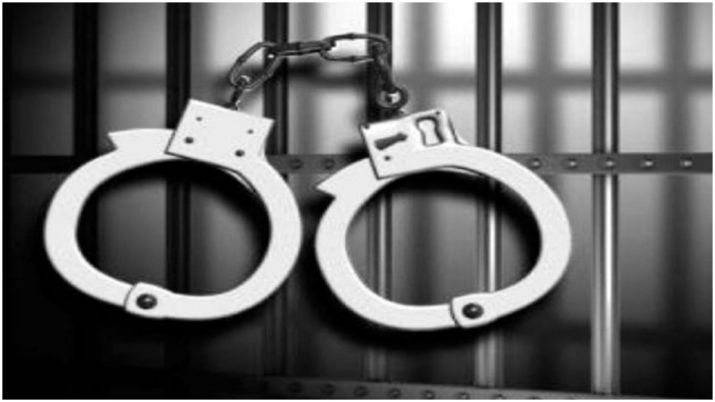
Arrest of prominent Kashmir clerics under PSA draws condemnation

Jammu and Kashmir authorities’ decision to book at least seven prominent religious scholars and preachers, bearing allegiance to various schools of Islamic jurisprudence (Maslak), in the past one week under the stringent Public Safety Act (PSA), has drawn widespread condemnation from socio-religious groups, political parties and commentators.
The arrested include Mushtaq Ahmad Veeri, a leading preacher of Salafi school of thought; Maulana Abdul Rashid Dawoodi of the Tehreek-e-Sou’t-ul-Awliya (Imam Hanafi school of jurisprudence); Abdul Majeed Dar al-Madni, and Sarjan Barkati, a public speaker known for composing anti-establishment songs and slogans during civilian protests in the past.
Imams and Khateebs of Jamiat-e-Ahl-e-Hadith (Imam Shafi Maslak) aka Salafi or Wahhabi school of jurisprudence, and groups like Barelvi, Sufi and the proscribed Jama’at-e-Islami (JeI, J&K) too were arrested.
Also read: After almost 3 decades, Jammu and Kashmir gets cinema halls
The arrested have a substantial following across J&K, especially Southern Kashmir and also on social media platforms.
Public faces of the banned JeI, such as Ghazi Moin-ul-Islam, Faheem Mohammad Ramzan, advocate Zahid Ali and Tariq Rehman have been booked under PSA.
The arrested have been shifted to Jammu. The PSA allows for detention up to two years without trial.
Islamic jurisprudence
Islamic jurisprudence, described as human understanding and practices of Sharia, has developed over the last 14 centuries. In due course, four leading schools of jurisprudence have emerged each with its own interpretation, analysis and application of the Sharia or Islamic law.
Also read: Electoral roll revision in Jammu and Kashmir raises a storm
Reactions
Former Chief Minister of Jammu and Kashmir Mehbooba Mufti attacked the Union government for arresting religious scholars.
“Unfortunately, not only did the Centre snatch our identity, land and jobs, they are now attacking our religion as well. Gates have been slammed shut on our central mosque (Jamia Masjid) since 2019, thus preventing worshipers from offering prayers. And now our religious scholars have been arrested,” Mufti, President of the People’s Democratic Party (PDP), told reporters.
In a Twitter post, Mufti wrote, “Jailing religious scholars, shutting down Jama Masjid and directing school kids to sing Hindu hymns exposes the real Hindutva agenda of the Central government. Refusing these rabid dictates invites PSA & UAPA. It is the cost that we are paying for this so-called ‘Badalta J&K’ (changing J&K).”
Jailing religious scholars, shutting down Jama Masjid & directing school kids here to sing Hindu hymns exposes the real hindutva agenda of GOI in Kashmir. Refusing these rabid dictates invites PSA & UAPA. It is the cost that we are paying for this so called “Badalta J&K”. pic.twitter.com/NssOcDP4t6
— Mehbooba Mufti (@MehboobaMufti) September 19, 2022
In the tweet, she shared a video link where a group of students in Kashmir’s Kulgam district was made to practice the hymn ‘Raghupati Raghav Raja Ram, Ishwar-Allah tero naam’, by their teachers.
Also read: 2 earthquakes hit Jammu and Kashmir in 1 hour
She said that while Kashmiris respect all regions, no one has a right to impose their choices on others. The government clarified that the hymns were being practiced as part of preparations for Gandhi Jayanti.
Kashmir’s lone Communist leader Mohammad Yusuf Tarigami told The Federal, “The spree of arrests will deepen uncertainty in Kashmir. This is very unfortunate. All of them should be released.”
Advocate GN Shaheen, the spokesperson of a faction of the Kashmir High Court Bar Association, said religious scholars cannot be a threat to public order. He appealed for the immediate release of the clerics.
“It is highly condemnable that district magistrates misuse the provisions of PSA and detain innocents,” he alleged in a statement.
Child psychologist Laila Qureshi posted an angry response on her Instagram account, “In Kashmir, anything is a crime and you can be booked under PSA, but is that a solution? Can thousands of PSAs change the cause of Kashmiris?”
She claimed, “from drug peddlers, religious scholars, kidnappers, supporters of Pakistani cricket team, social media activists to journalists, everyone in Kashmir was being booked under PSA.”
Also read: Kashmiri Pandits may get 2 seats in J&K assembly on delimitation panel’s advice
What police said
Kashmir Valley’s Additional Director General of Police (ADGP) Vijay Kumar on September 18 justified the arrests, claiming that the clerics were “instigating youth” despite being “warned” many a time.
“We have a lot of evidence (against the arrested clerics). That is why we have been cautioning them for the past four-five months not to instigate youth or people. But they did not stop, so we have booked them under PSA,” ADGP Kumar told reporters.
He said the police were monitoring the sermons of other clerics as well. He did not share the specifics of the offences allegedly committed by the clerics. He, however, said the evidence could be shared if the need arises.
Ban on JeI
In February 2019, the Centre declared Jama’at-e-Islami (JeI), a socio-religious and political organisation, as proscribed under the Unlawful Activities (Prevention) Act, UAPA. Banning the activities of JeI for a period of five years, the authorities had alleged that the group was “intending to escalate its subversive activities”. Kashmir’s then Inspector General of Police SP Pani had said the JeI was “intrinsically linked with United Jihad Council (an umbrella of armed militant groups based in Pakistan).”
Meeting with L-G
On September 19, a delegation of United Ulema-e-Ahl-e-Sunnah called on J&K’s Lieutenant Governor Manoj Sinha at Raj Bhavan in Srinagar.
A member of the delegation told The Federal that the issue of arrests of the clerics was raised in the meeting and he was asked to use his office to secure their release. A statement issued by the L-G’s office did not mention the arrests. It said that the members of the delegation discussed the promotion of Reshi-Sufi culture and traditions of the region.
The delegation demanded the constitution of the Madrassa Board for effective dissemination of Sufi teachings, the establishment of Sheikh-ul-Alam Research University and the promotion of cultural values in schools, colleges and universities.

